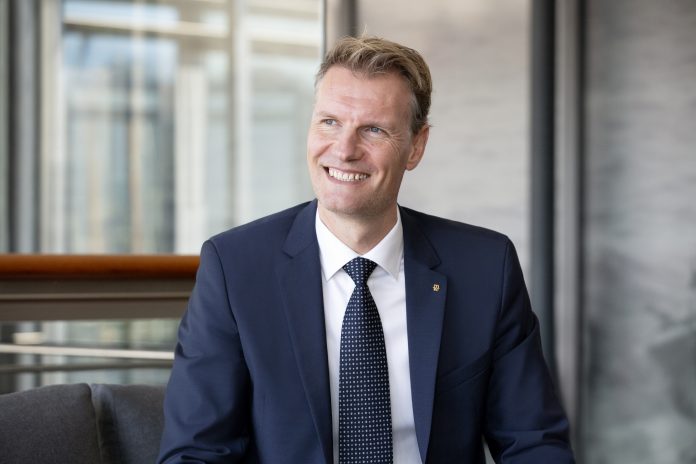MSC’s CEO Soren Toft has expressed concern that the European Union’s emissions trading scheme (ETS) could be commoditised and drive up costs.
During a Lloyd’s List podcast on 2 December, Toft said, “I find it extremely concerning is that the ETS is open for anybody and not just for the companies that are having factual emissions. Any person, any private equity, which wants to speculate can go and buy these carbon credits and trade them.”
From 2024, shipping will have to buy carbon allowances to pay for emissions from sailings within the European Union (EU).
Toft continued, “I think this is really concerning because it is leading to one thing—inflationary pricing and that inflationary pricing will have to be passed on to the client. I think that’s a very unfortunate and unintended consequence (of decarbonisation). It should be the companies that are having the emissions that should be able to buy those schemes.
“We want to have a global playing field and now, that didn’t happen and it seems not to happen and now, Europe is coming with the tax and we could very well expect that other parts of the world will come with their taxes and we’ll have a lot of regional schemes and it’ll become difficult for us and ultimately our customers to navigate this reality.”
On another note, Toft asserted that MSC is striving to meet the global target of achieving decarbonisation in 2050, but there is no one-size-fits-all solution.
Toft noted, “The conundrum with the energy transition is there is no single company that can solve this riddle. This really requires strong partnerships across the value chain and it’s really a missed opportunity that every single company, ourselves included, have to become the expert on these things. At the end of the day, we’re a transport and logistics company. We’re probably not the best experts, the best place to know what the future fuels should be so those are some of the things that are missing.”
Nevertheless, MSC is retrofitting some of its ships to be ready for alternative fuels.
Toft pointed out, “Energy efficiency has been important but it will be important in the next many years because the cost of fuel will only go one way. If you think about the next 10, 20 years and that’s up, so the notion of energy efficiency is still very much important.”
Martina Li
Asia Correspondent







